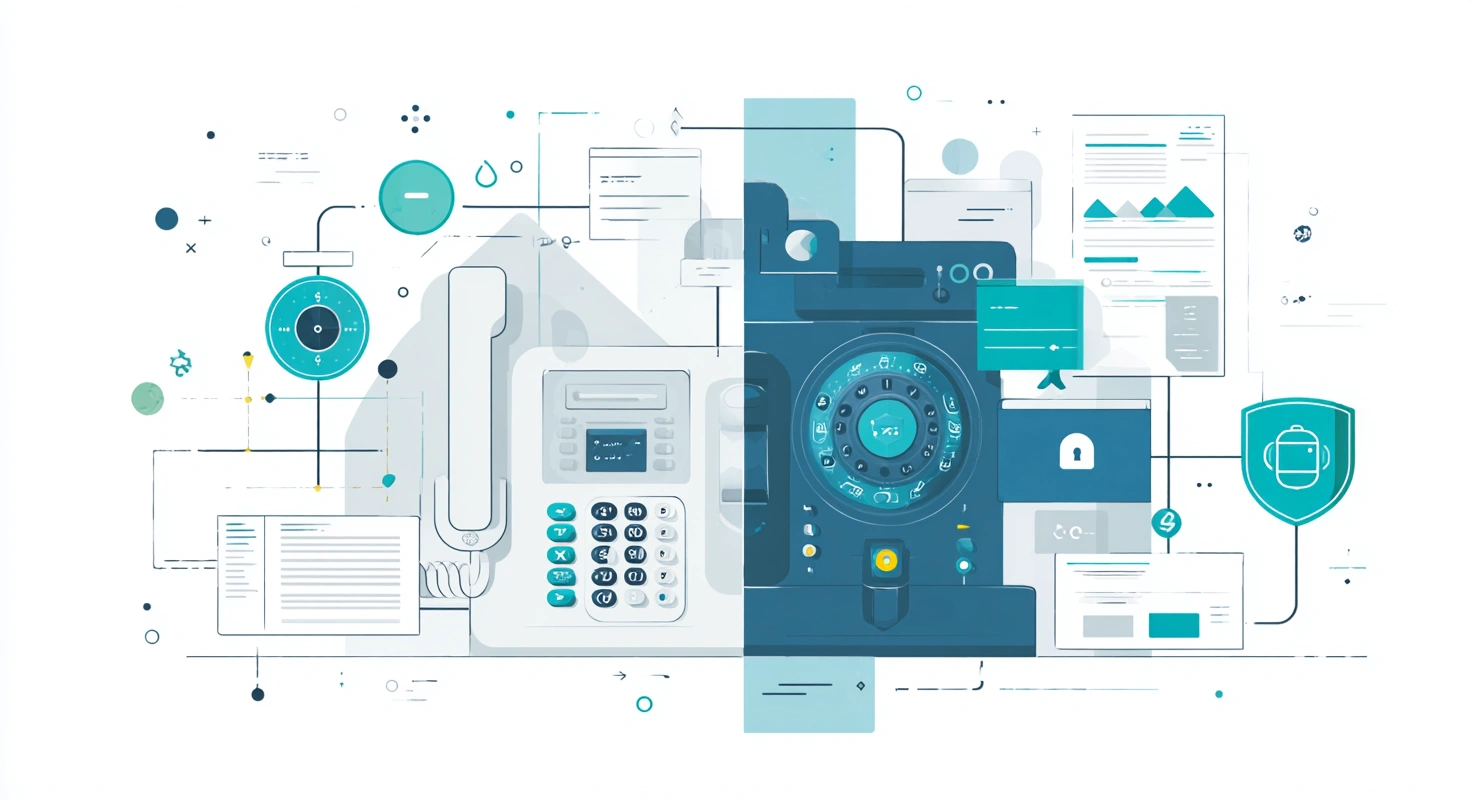The contact center is often a company's public face, the first interaction your customer has before or after purchase. A call center's success majorly ties up to the ability and professionalism of its agents.
It's essential, then, that your agents are well-trained and have all the tools and methods necessary to perform their work at the highest possible level.
Digital evolution has come hand in hand with growing skill gaps. There is also a need for contact center agents to apply deeper relationship-building, multi-tasking, and problem-solving skills to their job.
How is call center coaching transforming?
In a McKinsey survey of senior customer-care executives, 94 percent said they expected the skill demands put on their contact center agents to increase over the next five years.
Despite the need for a higher level of proficiency in handling customers, call center coaches remain challenged with developing agents' real-time skills, especially in multi-location teams.
Call center coaching is the best way to go about it & achieve real-time improvement. It is an activity that helps provide agents with feedback, performance assessments, and best-practice trends to help improve the skill set needed for their role.
Coaching sessions are different than a retrospective annual performance review. While annual performance review coaching is a formal assessment in which a manager evaluates an employee's work performance, call center training programs are meant to improve performance moving forward.
Call center coaching is not a replacement for quality management evaluations but is meant to complement these evaluations as part of the QM process.

Coaching is, thus, meant to provide detailed, tailored feedback to inspire agents to cater to the ever-growing demands of customers and provide tangible guidance on how they keep improving to reach their highest potential.
Coaching agents is a continuous process with holistic benefits affecting almost every aspect of your business & employees. It includes specific call center software training, customer interaction training, soft skill development, and real-time problem-solving.
While call center agent coaching may seem like a hard nut to crack, we've compiled the most effective tactics to help your multi-location teams evolve into professional customer experience experts, including:
- Set Strategic Goals
- Offer Constructive Feedback
- Choose the Right Tools
- Use Automated QA
- Encourage Self-Evaluation
- Gather Valuable Feedback
- Focus on your agents’ wellbeing
Set Strategic Goals
The very first step to coaching is being able to create a shared goal that motivates all the team members to work together for a common cause - catering to the demands of the customers & improving customer satisfaction thereby.

Moreover, it is equally important to collaborate with each contact center agent to create individual goals for them at multiple business locations.
These goals must be tailored to each of their strengths and weaknesses. As a result, they will feel more accountable & will be motivated to fulfill both categories of goals.
A significant thing to note is that every agent needs guidance, even if they are the smartest ones in the room. A great start would be providing coaching to all groups, including top performers, while also keeping an on those employees with the talent to reach the top.
Offer Constructive Feedback
Want to enhance the likelihood of agents considering your constructive criticism and making the suggested changes?
Well, employee recognition has been a cornerstone of effective management & coaching since times immemorial. Employee gifting solutions like Gifted can also play a pivotal role in showing appreciation and motivating employees.
A study reveals that 37% of employees cited recognition as the best way to support them. Thus, beginning the coaching session with something they have recently improved or are consistently doing well proves to be a great kickstart.

Moreover, "Your customer satisfaction scores are dropping this month" can never be as helpful as "Your customer satisfaction scores have declined 34% this month."
Giving your agents factual data to support performance decrements can be a great way to help agents understand the magnitude of the subject. It also allows them to quantify the shift in their performance & make necessary improvements.
Choose the Right Tools
It is well said that a contact center is only as good as its staff. Providing adequate attention using the most effective call center coaching techniques coupled with the right tools is essential to maintaining team engagement & improvement.
A straightforward way to assess the call center agents is essential to accurately measure performance, diagnose issues, and find prospects to drive better results.
When you're manually going through thousands of received calls, it is almost impossible to have visibility over every call. Thus, it gets difficult to extrapolate a result & even set goals based on the findings.

To fill this gap, the best coaches use the right call center coaching tool that automatically records and transcribes each contact center conversation. AI then picks up key phrases to track agent performance and progress that requires minimal effort from your end.
It also helps determine the top and subpar performers to identify their respective coaching opportunities while also turning the top performers' calls into coaching programs.
Thus, an ideal agent coaching platform helps you tailor coaching based on each agent's requirement & diagnose issues that impact revenue.
Use Automated QA
As much as they would like to, call centers cannot afford to monitor all the recorded calls manually. Manual listening can lead to incorrect judgments, thus making it difficult to assess the strengths & weaknesses of your agents truly.
Manual call auditing may lead to a flawed call center coaching program wherein supervisors could be focusing on the wrong areas & thus, missing out on significant improvement.
No two companies are the same. Convin thus allows you to score calls based on custom parameters. We help your company with automated analysis and agent performance report generation using AI. This way, you can experience accurate and unbiased auditing of customer calls.

Thus, getting an accurate picture of your agents' performance at multiple business locations will be easier. You can then tailor your coaching accordingly to accomplish the set goals.
Encourage Self-Evaluation
It is rightly said that sometimes the best way to improve a skill is to be your most prominent critic.
For a contact center coach, it is wise to encourage the sales rep to evaluate their performance and build self-improvement goals around essential observations.
Asking agents to conduct comprehensive self-assessments before coaching sessions will enhance their motivation to improve and speed up the learning process.
Self-awareness is the path to gaining self-confidence, which can help lead to more consistent sales. Thus, agents who can assess what they do well and where they can improve ultimately become more self-aware & prove to be profitable for the business.
Gather Valuable Feedback
As a coach or a manager, you have an immense influence on your employees' work-life & job satisfaction. Moreover, good management is a professional skill that needs both knowledge and practice.
Gathering information on which management style works for all & the best way to communicate with each individual ensures open communication, thus helping to cater to your employee's job satisfaction.
A recent study reveals that 2 in 5 employees have quit their jobs due to their respective managers.
If you are not gathering enough feedback, you may unknowingly leave your contact center agents dissatisfied, which could be a reason for the drop in their performance.
Thus, requesting feedback from your call center coaching programs is as important as offering feedback to change behaviors, improve productivity and evaluate performance.
Once you've valuable feedback at hand, it is necessary to act on the same. As a result, the agents will be eager to go the extra mile to serve your customers. This will, in turn, help improve customers' perception of your brand.
Focus on your agents’ well-being
The remote work environment has pushed contact center agents to change routines while continuing to hit quotas, leading to severe mental & emotional strain.
According to a recent survey by American Psychological Association, 81% of survey respondents said that employers' support for mental health would be an important consideration when they look for work in the future.
Based on this critical evaluation, it seems essential to seriously consider mental health at work. For a start, creating boundaries & setting specific work hours for your team can work wonders. It is important to know when the agents should check internal messages and when they can sign off.
Moreover, incentivizing performance can be a great way to motivate and retain your agents. You can also set custom incentives for each location in case of multi-location businesses with varying performance KPIs from location to location.
When each location meets a performance goal, everyone is rewarded. It can help promote teamwork and collaboration at the location since everyone has to perform to meet the shared goal.
Final Thoughts
There is an evident shift happening in the call center industry with an enhanced emphasis on enabling managers to provide the right coaching that's timely, automated, informed and efficient.
Effective call center coaching can be one of the most beneficial things for your agents and customers. It allows agents to develop skills, learn from top performers & manage customer interactions better.
As a result, coaching becomes more meaningful with significant enhancements to a call center’s critical operational metrics, including AHT, FCR, and CSAT scores.
When both agents and customers are well satisfied, you will notice reduced customer complaints, improved agent productivity, and significantly increased profits.
At Convin, we aim to help agents and customers be well satisfied, reducing customer complaints, improving agent productivity, and significantly increasing profits.
This blog is just the start.
Unlock the power of Convin’s AI with a live demo.










.avif)